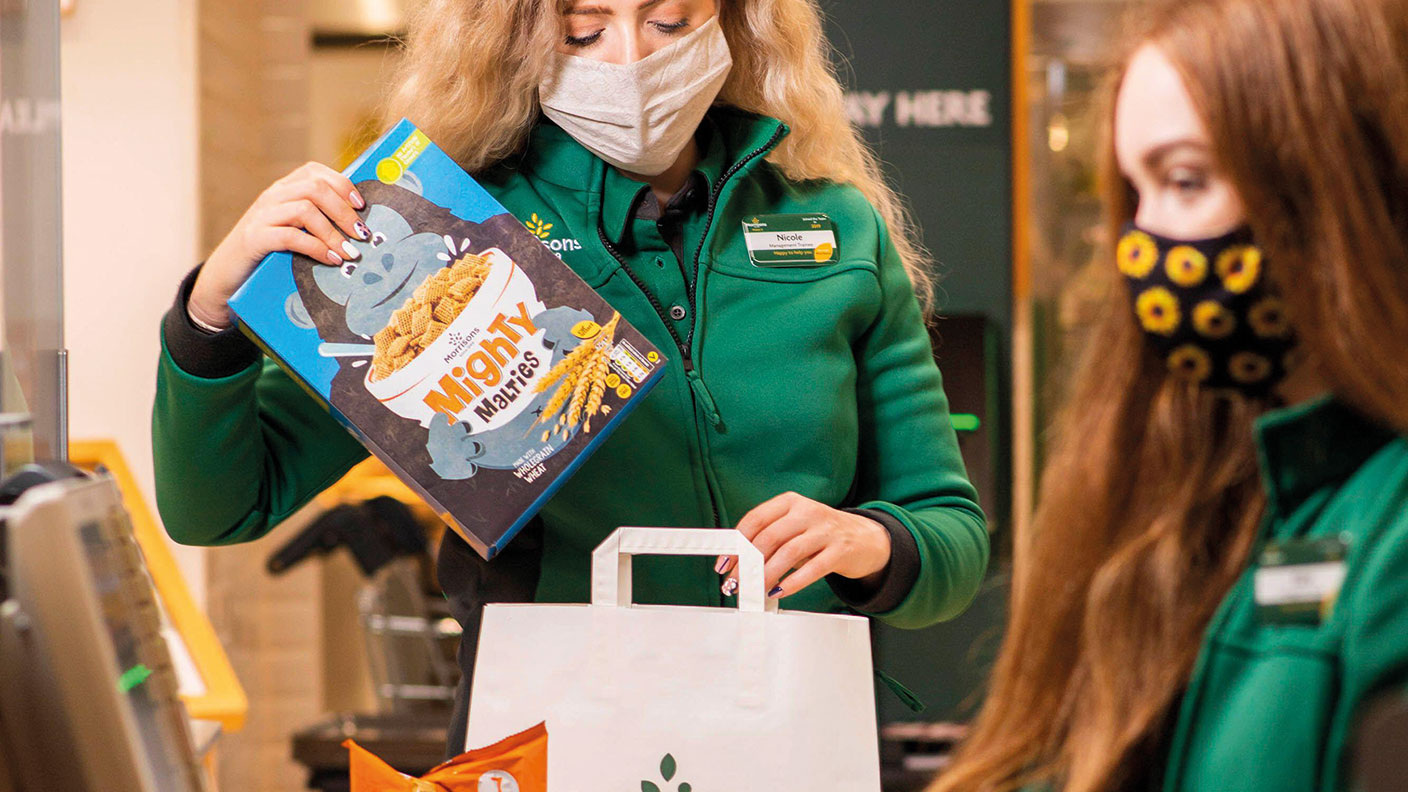Private equity's supermarket sweep
The private-equity battle for Wm Morrison is intensifying now that it has accepted a bid from Fortress Investment. Matthew Partridge reports


Get the latest financial news, insights and expert analysis from our award-winning MoneyWeek team, to help you understand what really matters when it comes to your finances.
You are now subscribed
Your newsletter sign-up was successful
Want to add more newsletters?
“You wait ages for a bidder to emerge for one of the UK’s big supermarket chains, then three turn up at once”, says Dominic O’Connell on the BBC. Having recently turned down a takeover offer from US private-equity firm Clayton, Dubillier & Rice (CDR), Wm Morrison has just “wrong-footed” the market by announcing a deal with a group of investors led by Fortress Investment. At 254p a share it represents a 42% premium to the supermarket’s pre-bid share price. And a third private-equity group, Apollo, is “considering its own offer”.
The Fortress bid is certainly convenient for Wm Morrison’s board, say Nils Pratley in The Guardian. Not only did it get a better offer than CDR’s, but it also gives it the opportunity to claim the moral high ground by selling to an owner they claim has a “long-term approach to investing”. But Fortress is “not running a charity”, while its commitments to good behaviour, including “industry-beating pay rates for staff”, are “statements of intention” rather than legally binding “post-offer undertakings”.
Don’t count on principle overriding profits, says Aimee Donnellan on Breakingviews. Whatever Wm Morrison’s board decides, there’s always the possibility that a new investor could go behind their backs by mounting a hostile takeover (bypassing the board and appealing directly to shareholders). Back-of-the-envelope calculations suggest that a bidder could offer 300p and still make a “decent return” if they were “prepared to ignore some of the employee-friendly promises made by Fortress”. At that price, institutional investors may swallow their complaints that private-equity firms “fundamentally undervalue British companies and have little regard for the long-term health of the businesses they buy”.
Try 6 free issues of MoneyWeek today
Get unparalleled financial insight, analysis and expert opinion you can profit from.

Sign up to Money Morning
Don't miss the latest investment and personal finances news, market analysis, plus money-saving tips with our free twice-daily newsletter
Don't miss the latest investment and personal finances news, market analysis, plus money-saving tips with our free twice-daily newsletter
Whatever the outcome of the battle for Morrisons, the “supermarket sweep” is likely to continue, says Sam Chambers in The Sunday Times. Private-equity firms who lose out on this deal may target other supermarkets, attracted by their “stubbornly low share prices”, especially when set against “healthy cash generation and big property portfolios”. Technology companies, especially Amazon, could also join in the fun. In 2017 Amazon spent $13.7bn on US retailer Whole Foods and made an approach to Waitrose.
Which supermarket is next?
Of the remaining supermarkets, Sainsbury’s is most likely to be the next subject of a bidding war, says Laura Onita in The Daily Telegraph. Its assets are “underpriced and highly cash generative”, while it “still has a lot of fat to burn”, which gives any new investor plenty of room to increase profits further through cost-cutting. Billionaire investor Daniel Kretinsky, known as the “Czech Sphinx”, recently acquired a large shareholding in Sainsbury’s. While Kretinsky claims the deal is part of a strategy “to acquire minority stakes in companies that sell food”, the move has sparked speculation that it could be a prelude to a bid to take the grocer private.
Get the latest financial news, insights and expert analysis from our award-winning MoneyWeek team, to help you understand what really matters when it comes to your finances.

-
 Invest in the beauty industry as it takes on a new look
Invest in the beauty industry as it takes on a new lookThe beauty industry is proving resilient in troubled times, helped by its ability to shape new trends, says Maryam Cockar
-
 Should you invest in energy provider SSE?
Should you invest in energy provider SSE?Energy provider SSE is going for growth and looks reasonably valued. Should you invest?
-
 Has the market misjudged Relx?
Has the market misjudged Relx?Relx shares fell on fears that AI was about to eat its lunch, but the firm remains well placed to thrive
-
 8 of the best properties for sale with minstrels’ galleries
8 of the best properties for sale with minstrels’ galleriesThe best properties for sale with minstrels’ galleries – from a 15th-century house in Kent, to a four-storey house in Hampstead, comprising part of a converted, Grade II-listed former library
-
 The rare books which are selling for thousands
The rare books which are selling for thousandsRare books have been given a boost by the film Wuthering Heights. So how much are they really selling for?
-
 How to invest as the shine wears off consumer brands
How to invest as the shine wears off consumer brandsConsumer brands no longer impress with their labels. Customers just want what works at a bargain price. That’s a problem for the industry giants, says Jamie Ward
-
 A niche way to diversify your exposure to the AI boom
A niche way to diversify your exposure to the AI boomThe AI boom is still dominating markets, but specialist strategies can help diversify your risks
-
 New PM Sanae Takaichi has a mandate and a plan to boost Japan's economy
New PM Sanae Takaichi has a mandate and a plan to boost Japan's economyOpinion Markets applauded new prime minister Sanae Takaichi’s victory – and Japan's economy and stockmarket have further to climb, says Merryn Somerset Webb